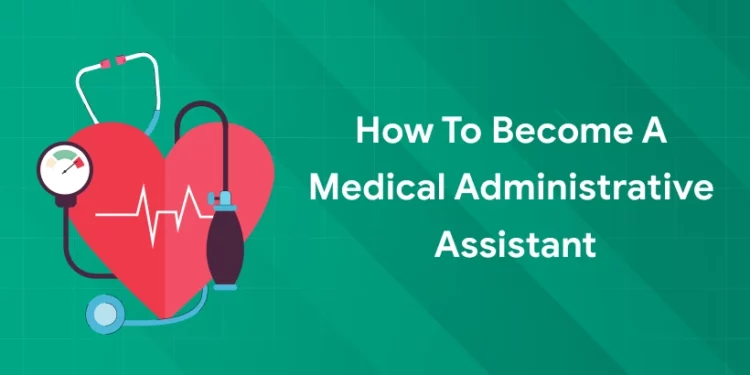Table of Contents
Key Takeaways:
- Medical administrative assistants play a vital role in healthcare by managing both clinical and administrative tasks.
- Essential skills include medical terminology knowledge, organizational ability, communication, and proficiency in healthcare software.
- Certification like the CMAA (Certified Medical Administrative Assistant) is highly recommended and enhances job prospects.
- The healthcare sector is experiencing steady job growth, creating many opportunities in diverse settings.
- Entri’s Hospital Administration course offers comprehensive training and placement support for aspiring professionals in healthcare administration.
Introduction: Why Choose a Career as a Medical Administrative Assistant?
Healthcare is one of the fastest-growing industries globally, with increasing demand for professionals who can streamline medical operations. Behind every healthcare provider, doctor, and nurse is a critical support system — medical administrative assistants (MAAs), who ensure the administrative gears keep turning smoothly. If the idea of being the backbone of a medical office appeals, this career path offers meaningful work with daily variety and the chance to impact patient experiences positively.
Many people interested in healthcare shy away from careers requiring long medical school years, yet still want to contribute directly to patient well-being. Medical administrative assisting bridges that gap: it offers hands-on involvement with healthcare teams while focusing on essential office, communication, and clerical functions. This career also opens doors to further advancement in hospital administration and medical office management.
What Does a Medical Administrative Assistant Do?
1: What is the primary role of a hospital administrator?
Medical administrative assistants ensure that healthcare facilities operate efficiently and that patients receive timely, organized care. Their diverse duties may include:
- Scheduling and Managing Appointments: Coordinating patient visits, specialist referrals, surgeries, and follow-ups with precision.
- Updating Patient Records: Maintaining accurate and compliant documentation in Electronic Health Records (EHR) systems.
- Handling Communication: Acting as a liaison among patients, doctors, insurers, pharmacists, and labs through phone calls, emails, or patient portals.
- Welcoming Patients: Providing a warm, professional front-office presence that sets the tone for a positive patient experience.
- Billing and Insurance: Preparing medical billing codes, verifying insurance eligibility, and assisting with claims processing.
- Office Administration: Managing inventory, ordering supplies, and ensuring regulatory compliance for health and safety.
By balancing these responsibilities, they reduce bottlenecks in patient care and help healthcare providers focus on clinical needs, making the assistant’s role indispensable.
Read more at: Responsibilities of Hospital Administrators
Hospital Administration Course with Assured Career Growth
Hospital Administration Course by Entri App: Master essential healthcare management skills, gain certification, and secure top roles in leading hospitals
Join Now!Essential Skills and Qualifications
Becoming a successful medical administrative assistant requires a mix of technical knowledge and interpersonal skills:
Medical Terminology
MAAs must understand and correctly use medical terms, abbreviations, and diagnoses to accurately document patients’ health information and facilitate communication with clinical staff. Certification programs provide comprehensive training in this area.
Organizational and Time Management Skills
Multi-tasking across appointments, documents, billing claims, and patient queries demands superior organizational ability and effective prioritization.
Communication Skills
Fluent, clear, and empathetic communication is vital when answering patient questions, explaining office policies, or interfacing with healthcare teams. Being approachable and professional builds trust and improves patient satisfaction.
Technical Proficiency
Comfort with medical office software, electronic health records, scheduling platforms, billing and coding tools, and basic computer skills is required. New assistants should seek hands-on experience with these systems early on.
Certification
While some employers do not require certification, credentialing such as the Certified Medical Administrative Assistant (CMAA) boosts employability, salary prospects, and professional credibility.
Other Helpful Traits
Attention to detail, confidentiality, problem-solving ability, and a willingness to keep learning are traits that help MAAs succeed and grow in their careers.
How to Become a Medical Administrative Assistant: Step-by-Step Guide
Becoming a successful medical administrative assistant involves a combination of education, training, practical experience, and certification. This step-by-step guide outlines the essential milestones to help you plan your journey wisely.
1. Complete Your Education
- High School Diploma or Equivalent: The first essential step is to complete your senior secondary education or equivalent (such as 10+2 or high school graduation). This is the foundational qualification most training programs require.
- Strong Academic Foundation: Focus on subjects like biology, health science, computer applications, and communication skills to prepare yourself for specialized training.
- Alternative Pathways: In some cases, candidates with only 10th-grade completion can enroll in certain certificate programs, but pursuing higher secondary qualifications will expand your options and improve job prospects.
2. Enroll in a Medical Administrative Assistant Program
- Choose an Accredited Program: Look for government-recognized or nationally accredited diploma or certificate courses in medical administrative assisting, healthcare office administration, or medical office management.
- Course Content: Programs typically cover medical terminology, healthcare laws and ethics, medical billing and coding, appointment scheduling, insurance processing, and patient communication. Hands-on training with healthcare software and Electronic Health Records (EHR) systems is crucial.
- Flexible Learning Options: Many institutions offer online, in-person, or hybrid courses, making it easier to balance studies with other commitments. Completing a recognized program helps validate your skills to employers.
- Duration: Certificate programs can last from 6 months to 1 year; diploma courses may extend up to 2 years. Choose based on your timeline and career goals.
3. Gain Practical Experience
- Internships and Externships: Many courses include a practical internship or externship module where you work under supervision in hospitals, clinics, or medical offices. This real-world exposure is invaluable for applying your theoretical knowledge.
- Volunteer Work: If formal internships aren’t available, volunteer in healthcare facilities, administrative offices, or community health programs to build experience and professional networks.
- Entry-Level Positions: Consider roles like medical receptionist or clerk to gain familiarity with healthcare office operations while continuing education or certification. Practical experience enhances your resume and confidence.
4. Obtain Certification
- Certified Medical Administrative Assistant (CMAA): Certification by a reputed body like the National Healthcareer Association (NHA) or equivalents is highly recommended. It demonstrates your competency and commitment to the profession.
- Exam Preparation: Use official study guides, practice tests, and prep courses to prepare thoroughly. The exam covers medical office procedures, administrative skills, communication, and legal regulations.
- Benefits of Certification: Certified assistants often enjoy better salaries, enhanced job security, and access to a broader job market. Some employers require certification as a hiring criterion.
5. Job Search and Continuous Learning
- Networking: Leverage relationships with instructors, peers, healthcare professionals, and internship supervisors to learn about job openings and get recommendations. Joining professional healthcare administrative groups can also help.
- Apply Broadly: Healthcare settings vary widely — from large hospitals and specialty clinics to private practices and outpatient centers. Be open to opportunities in various environments to gain diverse experience.
- Build a Strong Resume and Prepare for Interviews: Highlight your skills, certifications, relevant internships, and software proficiency. Prepare answers to common questions about conflicts, multitasking, and patient communication to impress employers.
- Commit to Lifelong Learning: Healthcare regulations, software, and procedures change regularly. Pursue ongoing education through workshops, advanced certifications, or Entri’s Hospital Administration course to stay competitive and advance your career.
Read in detail: How to Become a Hospital Administrator: A Step-by-Step Guide
Career Outlook and Salary Expectations
The medical administrative assistant role offers steady employment growth due to expanding healthcare needs and regulatory complexities. The U.S. Bureau of Labor Statistics projects an employment increase of about 10% through 2032, faster than the average for all occupations.
| Country/Region | Entry Level (INR) | Average (INR) | Experienced (INR) |
|---|---|---|---|
| India (Estimated) | ₹2,50,000 – ₹3,50,000 | ₹3,50,000 – ₹5,50,000 | ₹5,50,000 – ₹8,00,000 |
| Canada | ₹17,50,000 (CA$23/hr) | ₹23,50,000 | ₹30,00,000+ |
| USA | ₹21,00,000 ($30,000) | ₹27,50,000 | ₹35,00,000+ |

Hospital Administration Course with Assured Career Growth
Hospital Administration Course by Entri App: Master essential healthcare management skills, gain certification, and secure top roles in leading hospitals
Join Now!Why Choose Entri’s Hospital Administration Course?
For those wanting to expand beyond medical administrative assisting into broader hospital management, Entri’s Hospital Administration course is an ideal choice. The course offers:
- A comprehensive 8-month program combining practical and theoretical training, available in Kerala with flexible learning modes.
- Professional coaching on hospital operations, healthcare software, managerial skills, and communication.
- Training in Basic Life Support (BLS), interview preparation, and professional English to enhance employability.
- Hands-on internship opportunities within leading healthcare facilities to gain real-world exposure.
- Strong placement support that helps students secure rewarding career roles in hospital administration and allied fields.
Entri’s specialized course empowers students not just to enter but thrive in healthcare administration, making it a valuable step for aspirants in India and globally.
Conclusion
A career as a medical administrative assistant offers a meaningful way to contribute to healthcare without requiring extensive medical schooling. With ongoing demand, strong salaries, and professional growth opportunities, it remains an accessible and rewarding path. For those ready to aim higher, Entri’s Hospital Administration course provides practical skills, real-world experience, and placement support to launch successful careers in healthcare administration.
Invest in your future today—explore Entri’s Hospital Administration course and become a key player in advancing healthcare services in Kerala and beyond.
| Also Read | |
| How to Become a Hospital Administrator | |
| Top Skills Needed for a Successful Career in Hospital Administration | |
| Career Pathways in Hospital and Healthcare Administration |
Hospital Administration Course with Assured Career Growth
Hospital Administration Course by Entri App: Master essential healthcare management skills, gain certification, and secure top roles in leading hospitals
Join Now!Frequently Asked Questions
Do I need a degree to become a medical administrative assistant?
Most entry-level positions require only a high school diploma or equivalent along with certification courses in medical administrative assisting.
How important is certification for this role?
Certification such as CMAA is highly beneficial and often preferred by employers because it validates your skills and knowledge.
Can medical administrative assistants advance their careers?
Definitely. With experience and additional training like Entri’s Hospital Administration course, assistants can move into supervisory or administrative manager roles.
Is work-life balance good in this career?
Many medical administrative assistants enjoy regular daytime working hours with minimal overtime, making it an attractive career for work-life balance.
What other certifications can complement my skills?
Courses in medical coding, billing, electronic health records (EHR), and healthcare management are excellent complements.














